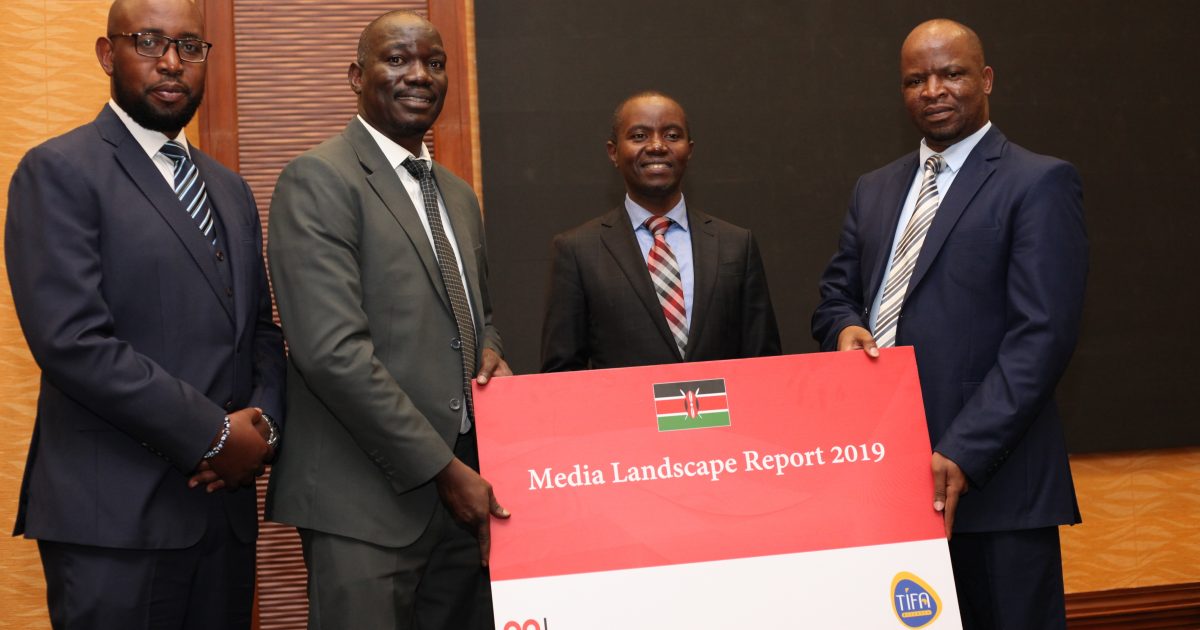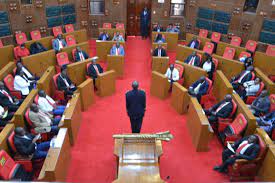The government will clear all the outstanding debts to media houses who carry out government advertisements, Ministry of ICT Cabinet Secretary (CS) Joe Mucheru has assured.
Mucheru said President Kenyatta directed the national and county governments ensure that they paid all the pending bills and this includes media houses.
“I want to assure media houses that they will be paid with some even getting their money as early as today,” said Mucheru.
The CS explained that Government Advertising Agency (GAA) will continue to advertise and invest in the media industry by ensuring they streamline government advertising.
“The aim of the agency was to strengthen and develop the advertising industry and I believe the media owners that we have spoken to have understood and are now working with us to ensure that we are doing it in the right way,” explained Mucheru.
Mucheru was speaking on Wednesday during the launch of the Media landscape report 2019 at the Serena
Mucheru noted that in the Kshs100 billion industry, the government accounts for only below 5 percent advertising business and it is not as significant as the media make it look.
“This industry is driven by advertising and the media houses should realise that the government’s aim is to communicate to its people and not to necessarily advertise. We have many forms we can communicate through,” highlighted the CS.
He challenged the media houses to understand what the advertisers want and give them solutions which address the market niche that the advertisers were looking for instead of the blanket forms of advertising.
“The government is currently undertaking the big 4 agenda, if we want to get information to expectant mothers how do we reach them so that they can understand the services that are available to them, that kind of advertising is very critical,” explained the CS.
Mucheru expressed surprise that the advertising industry was shrinking saying that it is worrying since today we are in the information age and advertisements are the best source of information.
“I am happy to come to the table as government and help to look at the problems and see what we as the industry can do to be able to fix this problem. Advertisement is the source of information for youth and it is extremely critical for the country,” said Mucheru.
“Prior to the handshake politics was always on the top in news items but now the trend has changed as most of airtime is given to crime news. But unfortunately, it is also depressing to watch news with all the crimes being broadcasted. How does one advertise alongside all this depressing news?”
The CS called on the media to balance their news items and also give prominence to positive news stories.
“People should also be sensitive on what they post on social media, some of the things that we are being accused of are ridiculous, if they were accusing me of hacking that would somehow be realistic,” posed Mucheru.
According to the media landscape report by Reelforge, digital migration has led to the emergence of new trends on media consumptions with radio previously holding the highest proportion of audience in Kenya.
The radio audience has however declined gradually from 92 percent in 2017 to 66 percent in 2019 but continues to be the most consumed media source in the country.
“In 2019 we have an estimated 81 free to air TV channels and that is close to six times the number of TV channels we had in 2013/14.
This has obviously had an impact on audience numbers for these platforms also points out that advertising expenditure remains the primary source of revenue for the media,” said Reel-forge Director Andrew Akeye.
Akeye said that TV and online audiences on the other hand have increased slightly from 50 percent and 30 percent respectively over the same period.
Increase on TV has mainly been driven by availability of more stations and the availability of this medium on different platforms including set-top-boxes and the online.
“Today we have more than 4.5 million set top boxes, more than quadrupling the audience figures for TV. Also noteworthy is the entry of Netflix in Kenya in 2016 with projected subscribers of about 15,000 in 2019,” explained Akeye.
Daily newspaper circulation has been on the decline since the digital migration with local dailies recorded a 33 percent decline in circulation between 2013 and 2018.
“With increased competition and declining advertising spends on traditional media, it is time for media enterprises to develop business models that will diversify revenue streams,” said Akeye.
By Joseph Ng’ang’a
Government to clear all debts owed to media houses, CS Mucheru





